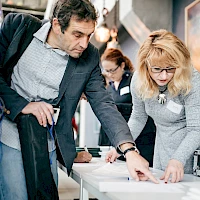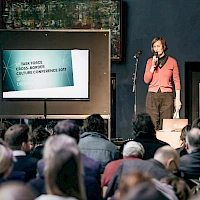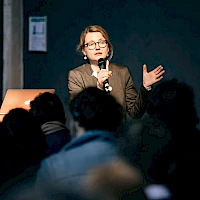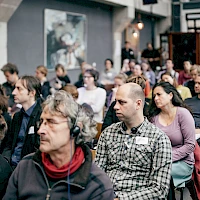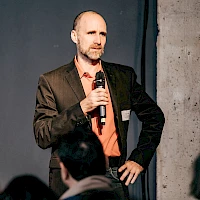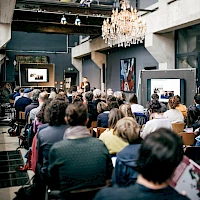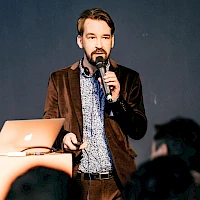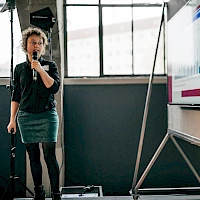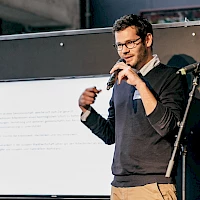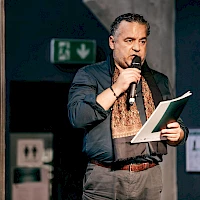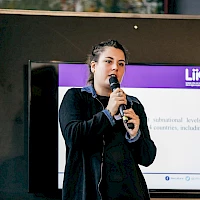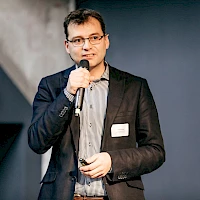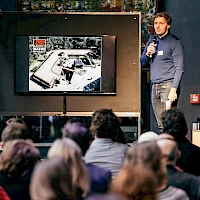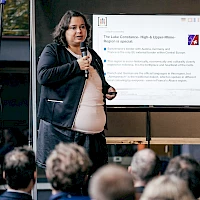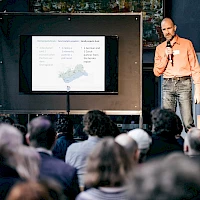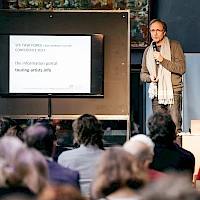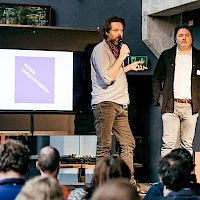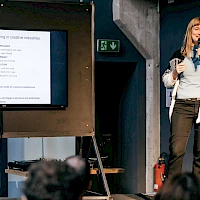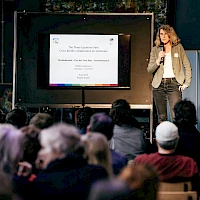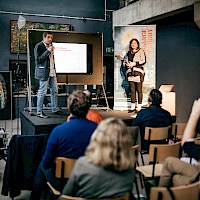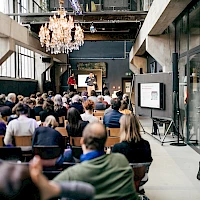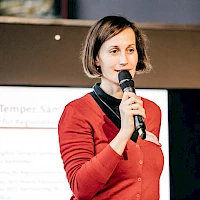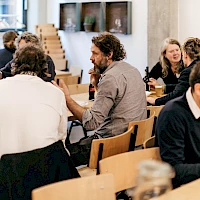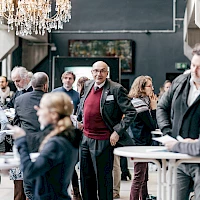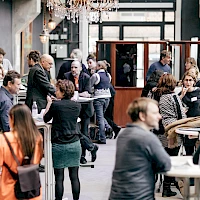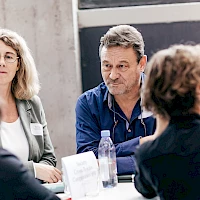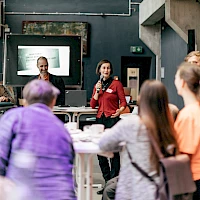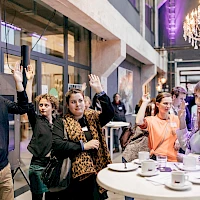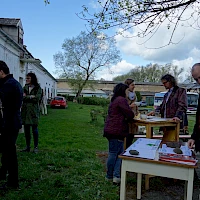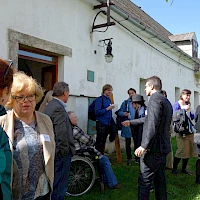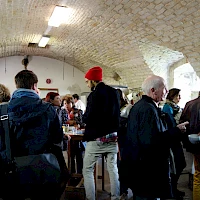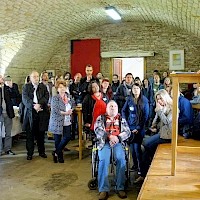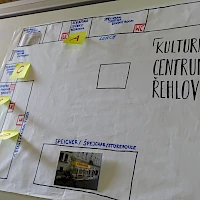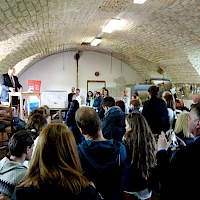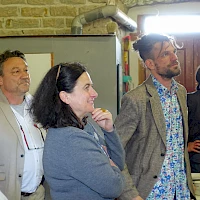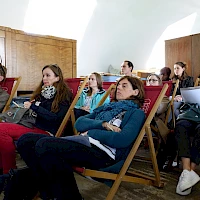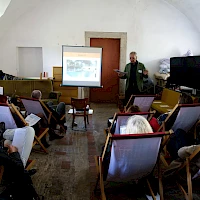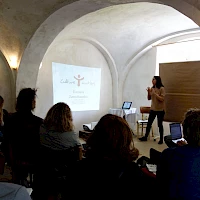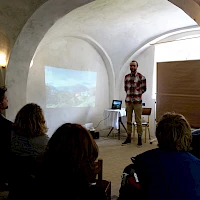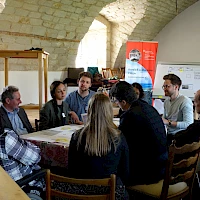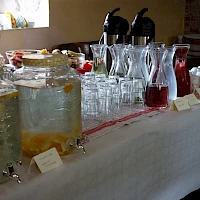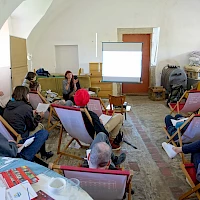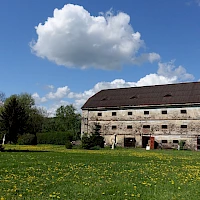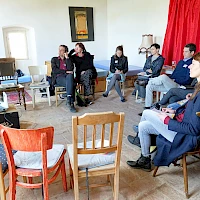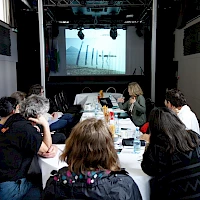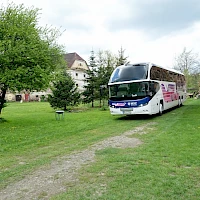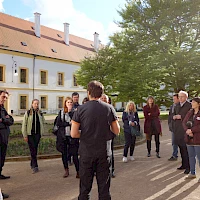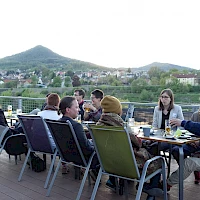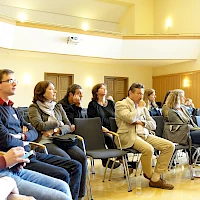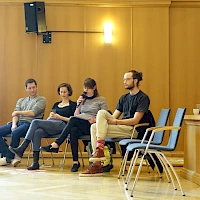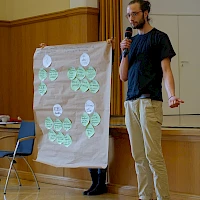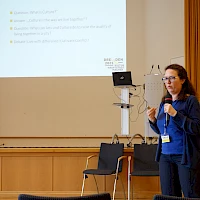Cross-Border Culture Conferences
5th Cross-Border Culture Conference 2017
The 5th Cross-Border Culture Conference took place on November 7th, 2017 at the Kraftwerk Mitte in Dresden. It was mainly organised by the Saxon State Association of Culture and Creative Industries (Sächsischen Landesverband der Kultur- und Kreativwirtschaft) in close cooperation with AEBR and Euroregion Elbe/Labe.
The conference focused on the cultural and creative industries in the German-Czech border region. During the conference, several European networks supporting international cooperation and successful best-practice projects were presented. In addition, a large number of practical issues and challenges connected with working in other countries were discussed, such as labour law, tax law or fee issues. Furthermore, the conference offered international contact and networking opportunities. The latter is one of the most important aspects of such conferences.
A total of about 80 guests attended the conference, mainly working in the field of culture management or cultural institutions. These came not only from the Saxon-Czech border region, but also from about a dozen European countries.
In preparation of the conference, a booklet was prepared containing information on all participating and presented institutions and projects as well as the speakers. It also contains a recommendation paper of the T4CBC to facilitate the cross-border work of artists in Europe. You can download it here in English:
Booklet of the 5th Cross-Border Culture Conference (EN, pdf, 1.4 MB)
Impressions of the 5th Cross-Border Culture Conference
6th Cross-Border Culture Conference 2018
Art and culture have the power to build bridges across national borders and are therefore of particular importance for all border regions. But in many border regions - far from the busy centres, in sparsely populated rural areas affected by emigration - these bridges often lack foundation. How can art and culture flourish there? From what should the cultural events grow? Who shall enjoy cultural facilities? How to attract creatives to such regions?
At first glance these border regions offer rather bad conditions for a vibrant culture scene. But they have potentials, too: very cheap and spacious real estate with genuine character, lots of open space, being close to often beautiful nature, good air, … And most of all: They are contact zones between at least two cultures. But how to seize those chances?
This was the topic of the 6th Cross-Border Culture Conference, which took place from 25 to 27 April 2018 in the Elbe/Labe Euroregion. The aim was to bring together cultural actors and multipliers from European border regions to exchange experiences and knowledge about culture in rural areas and to create active networks. The conference was again organised in cooperation with the Saxonian Association of Cultural and Creative Industries and AEBR.
The conference brought again about 75 people from 11 different European countries to the Elbe/Labe Euroregion. Especially actors from Central and Eastern European countries were invited to strengthen the links between West and East.
Programme
The conference began on the evening of 25 April with a meeting with the participants of the EUROCITIES Cultural Forum, which took place at the same time in Dresden. This enabled contacts between actors in the cultural sector in rural and urban areas.
The next day led to Řehlovice in the Czech part of the Euroregion. The cultural centre Řehlovice, which is located in an old, charming farmhouse, is a perfect example of the use of rural buildings for cultural purposes. In a first session with parallel workshops, the possibilities of culture in rural areas close to the border were discussed with a focus on resources and potentials. A second session concentrated on practical issues such as financing, bureaucracy and audience development. Parallel to these two sessions, two workshops on concrete project planning were held. In between there were many opportunities for networking and exchange of ideas, for which the ambience of the cultural centre Řehlovice provided a creativity-stimulating setting. In the evening the nearby city Děčín was visited and a dinner held on the culture ship Cargo Gallery.
Finally, on Friday the results and conclusions of the workshops were presented and discussed. Afterwards, the city of Dresden explained its candidacy as European Capital of Culture 2025, which also had a focus on the surrounding region, including the Czech Republic.

